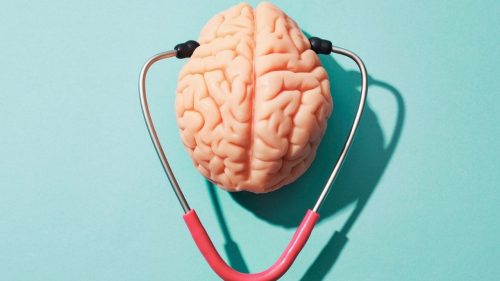Resources for Substance abuse During The Coronavirus Open in Massachusetts
During The Coronavirus Massachusetts opened more programs for substance abuse allowing those who are struggling a chance at recovery.

Massachusetts, United States – February 15, 2021 /MarketersMedia/ —
Massachusetts General Hospital’s physicians have moved to a silver lining in the difficult times of the COVID-19 pandemic: flexible new federal and state rules to help patients with substance use disorders (SUD) recover and stay there. The FDA has called for the use of buprenorphine and three other drugs that help treat opioid use disorders to last at least six months after a patient’s first dose of heroin or other opioid overdoses and has changed the rules for making them available to those who need them in areas that have increased the number of opioid overdose deaths in recent years.
US counties have provided opioid-use drugs, and American Society of Addiction Medicine (ASAM) has also taken action in the states – including new guidelines for the use of buprenorphine in the treatment of heroin and other opioid overdose deaths. As a result, addicts are much more susceptible to coronavirus, as they are likely to be more susceptible to infection and exhibit severe symptoms such as vomiting, diarrhea, nausea, and vomiting. This increases the likelihood that people with an addiction disorder will develop severe symptoms and be admitted to hospital and treated.
As the opioid epidemic has shown, it can be difficult to respond to this crisis, as many of the challenges associated with addiction, such as mental health, drug use disorders and drug addiction, need to be addressed simultaneously. People who suffer from alcohol and drug use could be marginalized even more at a time when the urgency of fighting a serious and deadly pandemic could take precedence over the treatment of a chronic disease. Finally, everyone must take into account the impact of the coronavirus on the health and well-being of people with addiction problems and associated challenges.
In this context, all available means should be used to treat these patients, including guidance on appropriate treatment facilities such as the emergency room. Couples Rehabs knows that treating addiction problems in ED can help prevent relapses, but at the moment, emergency room doctors are totally overwhelmed with the 19 cases of COVID and may not have access to addictive drugs to begin to use after an overdose.
The inpatient drug rehab focuses on the treatment of people with severe substance use conditions who are stable after detoxification, have manageable mental and physical symptoms, want to or consent to rehab, and are motivated to seek treatment. Treatment services include medications – assisted treatment, counseling, support groups, outpatient services, behavioral health services and other therapy. Patients are encouraged to stop as part of the recovery process and are given the resources needed to prepare for a successful recovery.
Individuals or couples who turn to drugs and alcohol run the risk of being found to have substance use disorder from a co-occurring mental disorder. In fact, other psychiatric disorders can lead to alcohol or substance use disorders. This can all be a potential risk factor for developing a drug or alcohol abuse disorder.
For a drug or alcohol addict, treatment of addiction can be an effective way to avoid coronavirus. Telemedicine can be used to provide behavioural therapy with proven efficacy for patients with alcohol and drug use disorders who seek to reduce or stop alcohol or drug abuse, and for individuals committed to maintaining their recovery and abstinence. Mutual support online program could help people with alcohol or other substance abuse disorders. For individual or couples therapy in Massachusetts contact the helpline and speak with a medical professional.
CouplesRehabs.org understands the difficulties individuals and their families face when dealing with substance and alcohol abuse, substance abuse disorders and other mental health issues. Treatment that does not address the root causes of addiction, such as alcohol and drug abuse, impedes individuals “long-term recovery.
For someone struggling with addiction, the COVID-19 pandemic disrupts their relationship with family, friends and colleagues and co-workers. Social distancing isolates vulnerable patients and leaves them open to misuse of prescriptions and illegal substances. This can trigger a cycle of substance abuse, alcohol abuse and other mental health problems such as depression.
This could lead them to turn to new and unknown dealers who provide them with drugs that are more likely to lead to overdoses. This can exacerbate depression and anxiety in people during recovery. These are the causes of drug and alcohol use and addiction and can cause depression, anxiety, and other mental health problems.
Given the high transmission rate of COVID-19, it is important to consider the risk of respiratory infections such as pneumonia, bronchitis, and pneumonia. There is also a high risk of lung injury, including respiratory failure and death. Patients with alcohol and drug use disorders are more likely to develop infections – associated consequences, as cardiovascular disease and lung comorbidities are associated with alcohol, opioids, and stimulants abuse.
Contact Info:
Name: Couples Rehabs
Email: Send Email
Organization: Couples Rehabs
Address: 4231 Balboa Avenue #1125 San Diego, CA 92117
Phone: Give us a call 888-325-2454
Website: http://www.couplesrehabs.org
Source: MarketersMedia
Release ID: 88997246